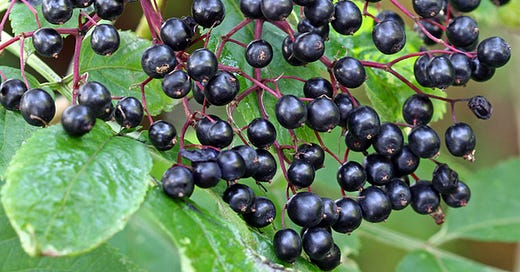Elderberry, scientifically known as Sambucus, has a long history of medicinal use dating back thousands of years. Native American and European traditional medicine recognized the elderberry plant for its potential to address various ailments. The dark purple berries and flowers of the elderberry plant were utilized in tonics, teas, and tinctures, showcasing its versatility in herbal medicine.
Elderberries are rich in antioxidants, particularly flavonoids like quercetin and anthocyanins. These compounds have been studied for their potential to support the immune system by reducing oxidative stress and inflammation. Additionally, elderberries are a good source of vitamins A and C, both of which play crucial roles in immune function.
Potential Benefits of Elderberry:
Immune Support: Studies suggest that elderberry may help reduce the duration and severity of colds and flu-like symptoms. The antioxidants in elderberries are believed to play a role in modulating the immune response.
Antiviral Properties: Elderberries have been investigated for their antiviral properties, particularly against certain strains of the influenza virus. Compounds in elderberries may inhibit the ability of viruses to enter and replicate in host cells, showcasing potential antiviral effects. Common forms include syrup, capsules, extracts, teas, and infusions. *Always chat with a health provider before adding any supplements. This information is purely educational




